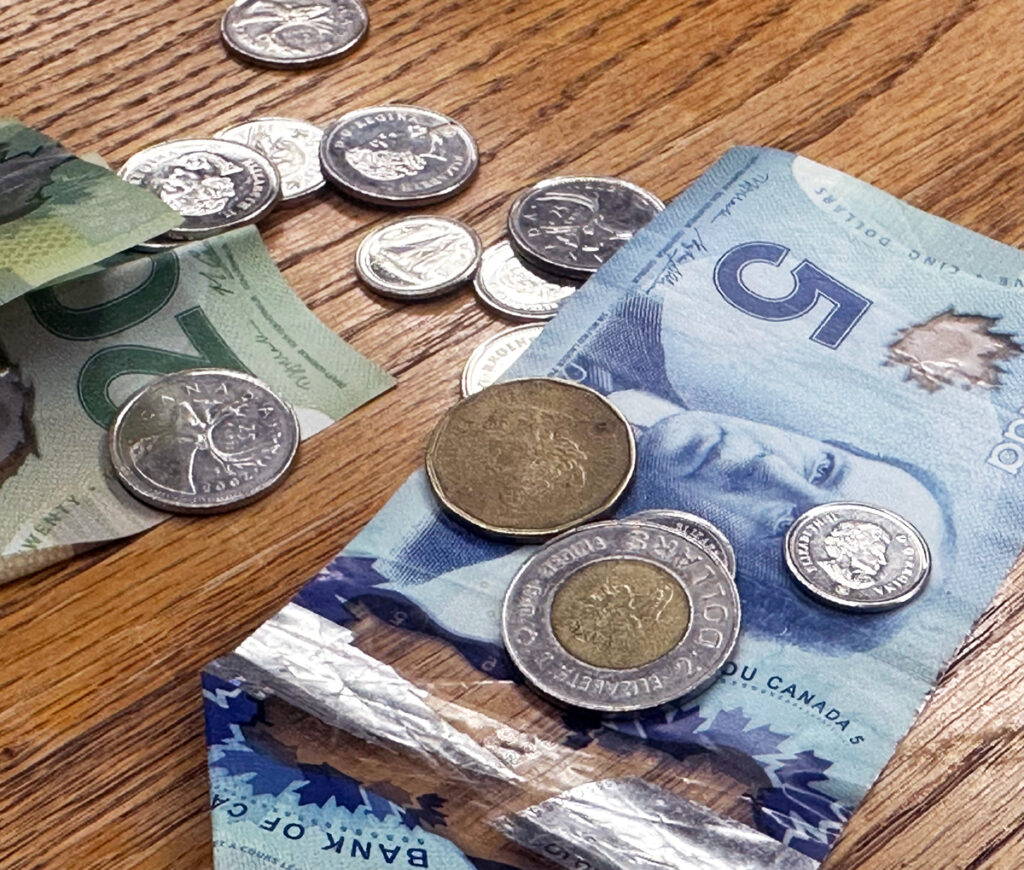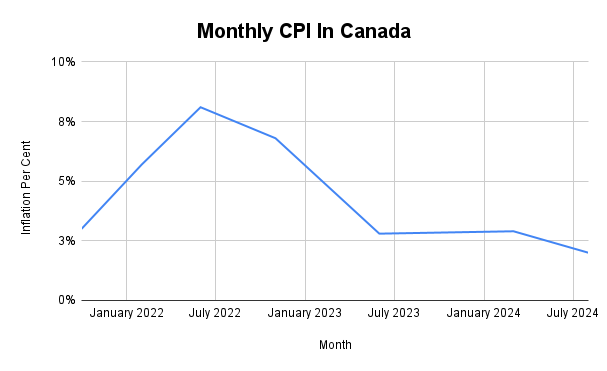
Canada’s inflation rate fell to its lowest level since Feb. 2021, registering at two per cent for August 2024.
The country’s Consumer Price Index (CPI) barometer, its main inflation gauge, reached a three-year low and hit the Bank of Canada’s CPI target, tumbling from the prior month’s 2.5 per cent according to today’s Statistics Canada release.
The slowdown in inflation was led mostly by a drop in air travel and footwear apparel costs according to the same StatsCan report, and a 5.1 per cent decline in gas prices. High and stable mortgage and rent costs helped to keep the number above two per cent.

The news comes as the Bank of Canada continues on its rate-cut path to help power back up many parts of Canada’s now-dampened economy, particularly its residential construction and resale market which are reporting flat sales and an escalating number of projects entering receivership. It could also help lower borrowing costs for debt-saddled Canadians, who saw their mortgage interest charges go up by 18.8 per cent in August.
The central bank has issued three rate cuts to its benchmark so far this year, totaling 75 basis points and falling to 4.25 per cent.
Food costs saw growth, too. Canadians paid 3.3 per cent more for dairy products and 1.5 per cent for fresh fruit, with overall food prices costing 2.4 per cent more.
Keyvan Eslami, an economics professor at Toronto Metropolitan University (TMU), said in response to whether Canada is reaching the end of the country’s above-target inflation period that “it is relatively tough to predict this stuff, but at least the trend is very suggestive that [Canada] is out of its troubles, so to speak.”
“However, [Canada] might be entering another hazard zone, and that being a recession,” continued Eslami.
Economists have grown worried in recent months that Canada’s falling inflation at a time of falling interest rates and a stagnating job market, which posted a sudden rise in unemployment in August to 6.5 per cent, may be an early indicator of recession.
RBC’s Deputy Chief Economist Nathan Janzen alerted clients in a note at the start of September that a “down-drift in job openings signals hiring demand from businesses is slowing.”
And earlier this month the Governor of the Bank of Canada Tiff Macklem said “with inflation getting closer to the target, we need to increasingly guard against the risk that the economy is too weak and inflation falls too much.”
Inflation has followed a similar path in Canada’s southern neighbour, where the August reading came in at 2.5 per cent, its lowest in three years too. However, the Fed has yet to embark on a path of monetary easing of its own, representing stronger inflationary pressures in the world’s biggest economy. The decision bucks the trend of the rest of G7 countries who are now almost half a year into rate cuts.
On today’s inflation news, CIBC Senior Economist Andrew Grantham said to clients in a note that “inflation remains unthreatening and the Bank of Canada should now focus on trying to stimulate the economy and halting the upward climb in unemployment.”
“It is tough to say if we are entering a recession,” said Eslami. “Data shows the labour market is cooling down, and both the Federal Reserve and Bank of Canada have said they are worried about recession risks.”
